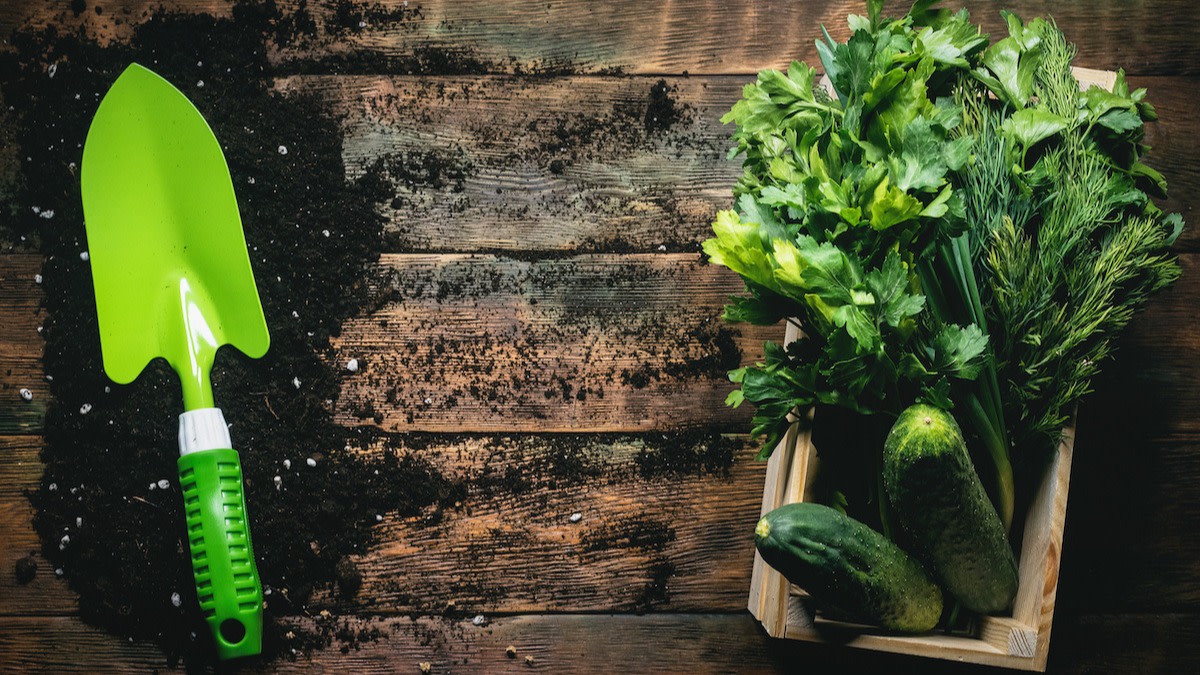Dill Companion Planting Guide: 5 Plants to Pair With Dill
Written by MasterClass
Last updated: Jun 7, 2021 • 3 min read
Dill plants make great companion plants for your vegetable or herb garden, as they attract beneficial insects like ladybugs, praying mantises, and wasps that deter pests like aphids and cabbage moths.
Learn From the Best
What Is Companion Planting?
Companion planting is a time-tested gardening method that enriches and protects vulnerable crops. Farmers and gardeners plant specific crops near each other in order to deter pests, attract beneficial insects, and stimulate growth.
What Are the Benefits of Companion Planting?
Companion plants will either help a specific crop grow or will grow better beside a specific crop, and can do many support jobs in the garden:
- 1. Repel insect pests. Cabbage worms, cucumber beetles, Mexican bean beetles, carrot flies, cabbage moths—all kinds of pests can plague vegetable gardens. Many companion plants (like marigold flowers, catnip, and rue) repel specific pests and should be planted near certain crops to keep them pest-free.
- 2. Attract beneficial insects. Pollinators like bees and ladybugs can use a little encouragement to visit vegetable gardens and pollinate the crops. Gardeners often plant attractive plants like borage flowers to encourage pollinators to visit.
- 3. Improve soil nutrients. When crops grow, they take up valuable nutrients from the soil—leaving the gardener to do a lot of work at the end of the season to renew the soil’s nutrients. However, there are many companion plants (like bush beans and pole beans) that add nutrients like nitrogen back into the soil, helping keep other plants healthy.
- 4. Encourage faster growth and better taste. Many companion plants (like marjoram, chamomile, and summer savory) release specific chemicals that encourage faster growth or better taste in the plants around them.
- 5. Provide ground cover. Plants that spread low across the ground (like oregano) serve as a blanket over the soil, protecting it from the sun and keeping it cooler for plants that benefit from lower temperatures.
- 6. Provide necessary shade. Plants that grow tall and leafy (like zucchini and asparagus) can provide welcome shade for sun-sensitive plants beneath them.
- 7. Serve as markers. When growing slow-growing plants, it can be difficult to tell where the rows will be while you’re waiting for the seeds to sprout. Gardeners often use fast-growing plants (like radishes) interspersed with the slow growers in their rows to delineate where the slow growers will be.
5 Companion Plants to Grow With Dill
Dill weed is an essential ingredient in many recipes as well as a good companion plant to grow in your vegetable garden. Dill attracts beneficial insects like ladybugs and hoverflies that prey on common pests like squash bugs and flea beetles. Dill also attracts pollinators that aid plant growth. Some of the plants that dill grows well with include:
- 1. Brassicas: Dill can improve the health of brassicas like broccoli, kohlrabi, cauliflower, Brussels sprouts, kale, and Swiss chard. Dill repels pests like the cabbage worm, cabbage moth, and cabbage looper that prey on brassicas.
- 2. Asparagus: Plant dill seeds near asparagus plants to attract lacewings and ladybugs, which prey on aphids that damage asparagus.
- 3. Chervil: Chervil and dill provide many of the same benefits to other companion crops—for instance, both attract parasitic wasps that prey on pests. Planting them together can amplify these effects and provide further protection to your vulnerable veggies.
- 4. Cucumber: Dill attracts beneficial insects that eat cucumber pests like cucumber beetles.
- 5. Tomatoes: Dill can improve the health of tomato plants and attract predators of the tomato hornworm. Dill should be planted near tomato plants until the dill matures, at which point it can actually diminish tomato growth.
Some plants like nasturtiums, borage, marigolds, and marjoram make good universal companion plants and pair well with dill, as they deter many common pests.
2 Types of Plants to Avoid Growing With Dill
Dill has negative effects on certain plants, and you should consult a comprehensive companion planting chart before deciding on a companion planting strategy. Dill can attract pests like spider mites that prey on other veggies. It can also cross-pollinate with some plants, resulting in bitter-tasting hybrids. Here are some plants that should be kept away from dill:
- 1. Umbellifers: Dill should not be planted near other members of the Umbelliferae family, like angelica, caraway, carrots, and fennel. Dill can cross-pollinate with some of these plants, resulting in a poor-tasting hybrid. Dill will also attract carrot flies that prey on carrots.
- 2. Nightshades: Hot peppers and bell peppers should be kept away from dill, as should other nightshades like eggplant. Dill can adversely affect the health of nightshade plants. While young dill can be beneficial for tomatoes, mature dill plants that have gone to seed can hinder tomato growth.
Learn More
Grow your own food with Ron Finley, the self-described "Gangster Gardener." Get the MasterClass Annual Membership and learn how to cultivate fresh herbs and vegetables, keep your house plants alive, and use compost to make your community - and the world - a better place.
